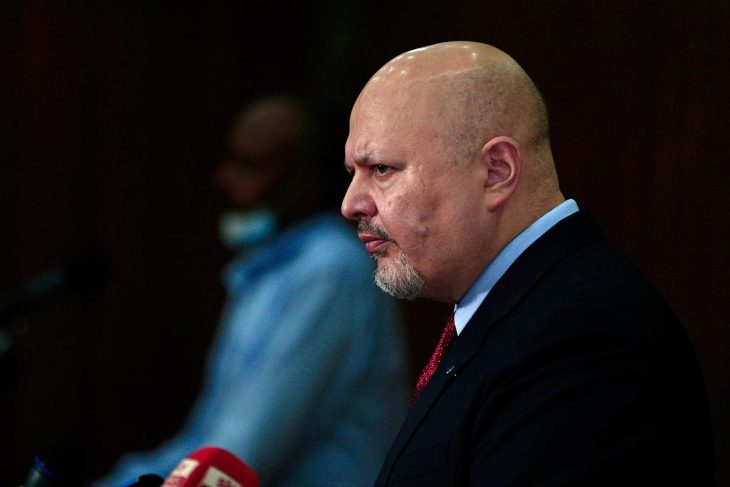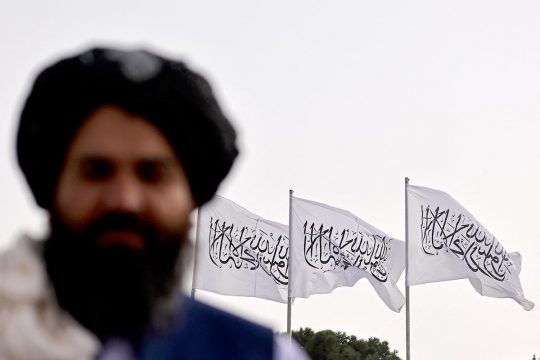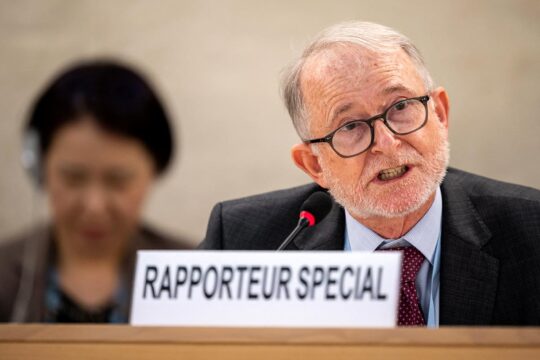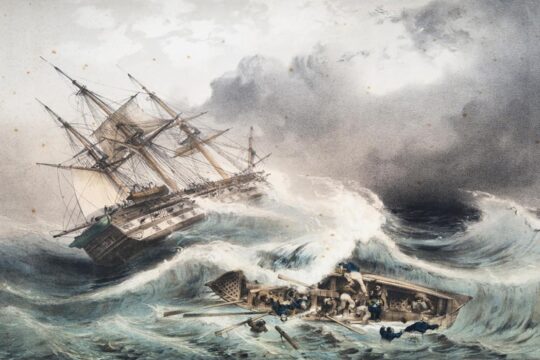Karim Khan, the new International Criminal Court (ICC) prosecutor, had been in office for just over three months when he dropped a bombshell in the international justice arena, saying that his office will now focus on crimes committed by the Taliban and by the Islamic State Khorasan Province, the Islamic State group’s affiliate in Afghanistan. He wrapped up this news in an announcement that he has requested pre-trial judges now authorise his work, put on hold by his predecessor, because Afghan authorities had asked for a delay on the basis they were pursuing cases nationally.
Afghanistan joined the court in 2003. The preliminary examination into crimes committed on its territory had been going on for more than a decade before former prosecutor Fatou Bensouda asked judges to authorize a full investigation. Judges first balked, saying that it would not be in the interests of justice, but that decision was overturned on appeal. Then in March 2020 Kabul requested the prosecutor suspend her office’s work in favour of an Afghanistan-led process. Meanwhile, the prosecutor and a senior colleague were subjected to a US presidential executive order sanctioning them and their work.
Details in the preliminary examination, annually reported, showed that the prosecutor was documenting crimes allegedly committed by U.S. forces, including extrajudicial killings, drone strikes that killed an untold number of civilians, and allegations of torture.
A litmus test for justice?
For Afghan human rights defender Horia Mosadiq, Khan’s decision to limit the scope of the investigation is harmful. “In the eyes of so many Afghans, including myself, you would just see it as a biased investigation other than being impartial”, she said, adding that “mistrust” of the court has always been there, knowing “the pressure that the court was under”.
It was a “necessary” statement says Sergey Vasiliev of University of Amsterdam, to reassure some parties that as Khan resumed the investigation they would not be under active investigation: “a Trojan Horse,” as he terms it, because many observers would welcome the additional news that the prosecutor’s probe will restart.
Liz Evenson of Human Rights Watch is among them. She had been sceptical that the Afghan authorities were going to conduct real investigations. But she says the new British prosecutor’s approach is, to her, “both inconsistent with victims’ access to justice, inconsistent with promoting the idea that the rule of law applies to all”.
The prosecutor does have discretionary power to prioritize or de-prioritize any aspect of the investigation, acknowledges Vasiliev, “but the optics here are rather troubling,” he says. Khan’s statement focused on recent serious atrocities and couched his decision in a reference to the UN Security Council’s condemnation of attacks on the US military by ISIS-K. Was this “a convenient opportunity to shelf the US part of the probe,” he muses, while emphasising that that is the “appearance”, rather than necessarily the full reality. Evenson notes though that it feels “unusual” to make this kind of public determination before the investigation has even begun.
In response to the prosecutor, lawyers trying to have victims represented at the court have also shown their concern. “[The] Decision to deprioritise and seemingly hold in abeyance the investigation in relation to, among others, crimes committed as part of the ‘CIA detention program’ deprives the victims of any prospect for a genuine and effective investigation, and eventually the right to truth and reparations for the extreme injustices they faced as part of this program”, write the lawyers. Judges have meanwhile reminded them that victims have no role to play in this stage of the process.
Instead their focus is on who actually represents Afghanistan as the formal interlocutor to the court, which – until decided – may delay the investigation again.
The ICC has long faced questions about its ability to take on the world’s most powerful countries. The last prosecutor opened inquiries into potential Russian crimes in Georgia which has delivered nothing and into Ukraine which is unfunded, and into alleged Israeli crimes in Palestine with no more tangible result. All to considerable praise. She also backed off a preliminary examination into acts committed by British troops in Iraq.
“The Afghanistan situation and the investigation into the alleged crimes of US servicemen are widely regarded (along with the Palestine situation) as a true litmus test for the ICC,” says Vasiliev. “Will it proceed on the course of collision with powerful states/their allies, or rather do their bidding while focusing its attention on ‘safer’ actors?”. Part of the bigger picture says Evenson is that the prosecutor’s choice not to go ahead with looking at US forces “creates this sort of recipe if you obstruct, if you make cooperation difficult, then you, your conduct or the conduct of your nationals could be shielded from scrutiny. And that's clearly not a message that we think that the prosecutor should be sending”, she adds.
“The very definition of double-standards”
The ICC is, “at the very least [giving] the appearance of applying double standards”, reacts Matt Cannock, from the human rights organisation Amnesty International.
In September 2019, he notes the prosecutor “provided that, in its request for authorisation to investigate in Afghanistan, it had identified 78 incidents which were attributed to US forces and CIA [while 50 were attributed to the Afghan government forces and 75 to the Taliban].” In the prosecutor’s own words, he recalls, “these incidents were selected from ‘the most prevalent and well-documented allegations’ in order ‘to reflect the gravest incidents’ [emphasis added]’. In this light, the decision to deprioritize and therefore not actively investigate a single incident from those which seemingly formed the largest proportion of its authorization request is exceptionally hard to comprehend”.
“Deprioritizing investigations into war crimes allegedly committed by US nationals – of a globally-northern ‘major-power’ - while prioritizing investigations of war crimes allegedly committed by actors from the global south – is the very definition of double-standards”, Cannock continues.
Such alarm is understandable says Vasiliev, when taking the history and geopolitical context into account. “The de-prioritization of those aspects of the Afghanistan investigation is something a number of States Parties may have badly wanted, and many of them are likely relieved to hear about this course correction. Whether or not this is a definitive triumph of ‘double standards’ rather than a delayed/phased approach, or a long game, remains to be seen”.
“We are under no illusion,” says Cannock, “that Karim Khan will come, as his predecessor did, under immense pressure from powerful states as his office looks set to investigate situations where their nationals and interests are affected. It is tragic therefore that his first major decision seems to align with the objectives of those powerful states who had sought to infringe his Office’s independence”.
Proper resources and credible cases
In his statement, Khan explains his unpopular decision. “The gravity, scale and continuing nature of alleged crimes by the Taliban and the Islamic State, which include allegations of indiscriminate attacks on civilians, targeted extrajudicial executions, persecution of women and girls, crimes against children and other crimes affecting the civilian population at large, demand focus and proper resources from my office, if we are to construct credible cases capable of being proved beyond reasonable doubt in the courtroom.”
The key words here are proper resources and credible cases, while the court is for a long time locked in a two-step with states parties, where repeated requests for more budget from them are denied until the court can show that it’s actually able to deliver successful prosecutions.
Douglas Guilfoyle of University of New South Wales, Canberra, commends his “strong signal” in the Afghanistan situation. “We have a prosecutor now who wants to focus resources and focus on what can be done successfully within the envelope of resources that the court has, which seems to me a fundamentally realistic approach. And the point I keep making is already the best funded International Criminal Tribunal that has ever existed”.
Guilfoyle says he is surprised by the tone of reaction to Khan’s statement in the NGO community. In particular, the critique of Khan’s decision as being ‘double standards dressed up as pragmatism’, is an “accusation of bad faith or unprofessional conduct, which I find quite extraordinary,” he says, pointing out that “international criminal justice is always and can only be selective” and suggesting it is “ludicrous” to assume the ICC is “going to investigate every possible situation within its jurisdiction, then every possible crime and every possible party that falls within a situation under investigation”.
Evenson agrees the court has a “a real dilemma” and acknowledges that “missteps by court officials have probably limited the court's effectiveness as well, even within the resources it has” But she says this dilemma “can't be solved by pursuing selective justice in a given situation. Once the ICC is active in a situation, it really needs to take an open-ended approach”, she argues.
These continued arguments about what kind of a court the ICC is, and whether it can deliver justice have been brought into focus again with the new prosecutors’ decision. “Unless we take a more pragmatic view of the court,” says Guilfoyle, “its ability to deliver anything particularly significant is always going to be limited.”








